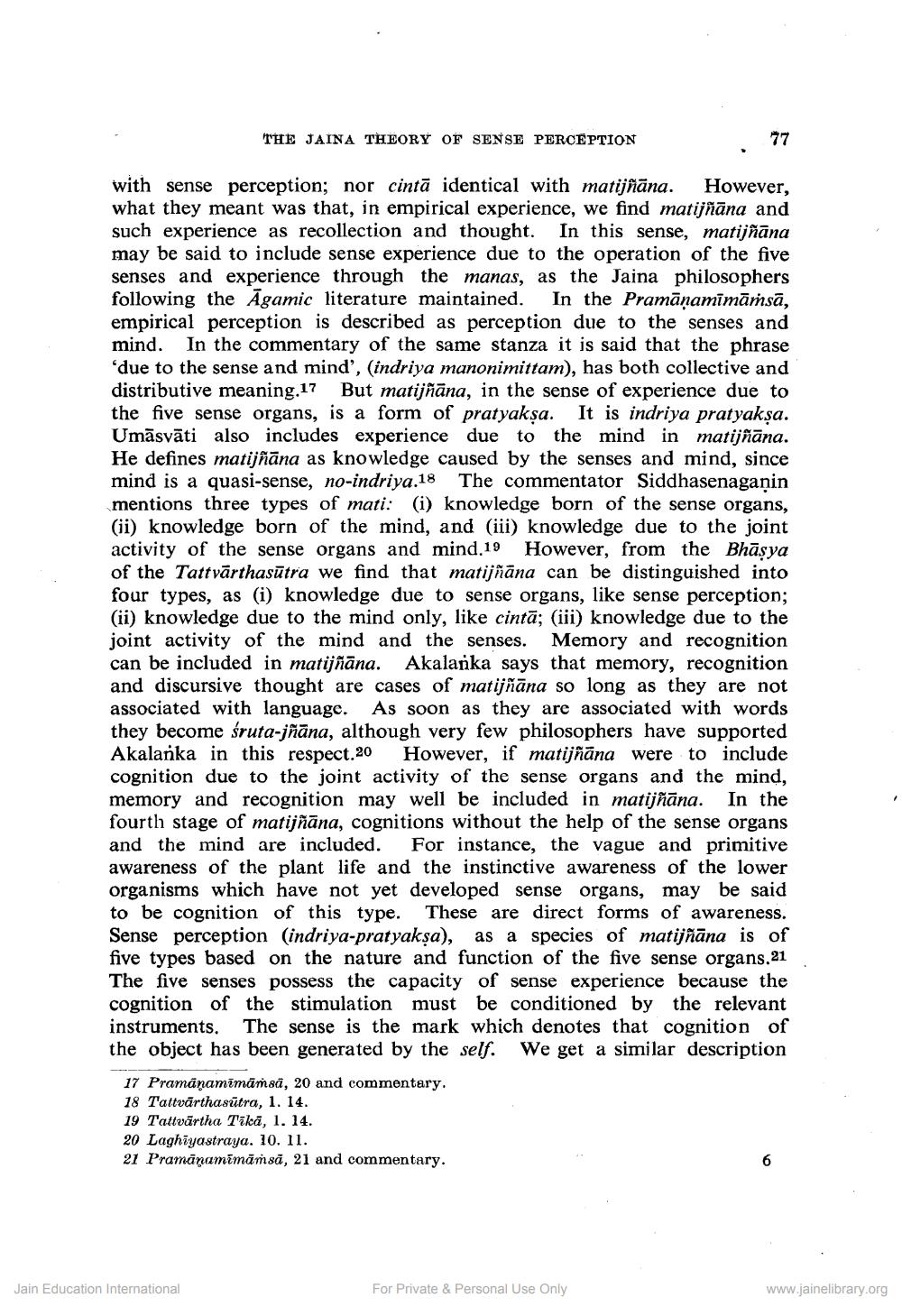________________
THE JAINA THEORY OF SENSE PERCEPTION
77
with sense perception; nor cintā identical with matijñāna. However, what they meant was that, in empirical experience, we find matijñāna and such experience as recollection and thought. In this sense, matijñāna may be said to include sense experience due to the operation of the five senses and experience through the manas, as the Jaina philosophers following the Āgamic literature maintained. In the Pramānamimāṁsā, empirical perception is described as perception due to the senses and mind. In the commentary of the same stanza it is said that the phrase due to the sense and mind', (indriya manonimittam), has both collective and distributive meaning.17 But matijñāna, in the sense of experience due to the five sense organs, is a form of pratyaksa. It is indriya pratyaksa. Umāsvāti also includes experience due to the mind in matijñāna. He defines matijñāna as knowledge caused by the senses and mind, since mind is a quasi-sense, no-indriya.18 The commentator Siddhasenaganin mentions three types of mati: (i) knowledge born of the sense organs, (ii) knowledge born of the mind, and (iii) knowledge due to the joint activity of the sense organs and mind. 19 However, from the Bhāsya of the Tattvārthasūtra we find that matijñāna can be distinguished into four types, as (i) knowledge due to sense organs, like sense perception; (ii) knowledge due to the mind only, like cintā; (iii) knowledge due to the joint activity of the mind and the senses. Memory and recognition can be included in matijñāna. Akalanka says that memory, recognition and discursive thought are cases of matijñāna so long as they are not associated with language. As soon as they are associated with words they become śruta-jñāna, although very few philosophers have supported Akalanka in this respect.20 However, if matijñāna were to include cognition due to the joint activity of the sense organs and the mind, memory and recognition may well be included in matijñāna. In the fourth stage of matijñāna, cognitions without the help of the sense organs and the mind are included. For instance, the vague and primitive awareness of the plant life and the instinctive awareness of the lower organisms which have not yet developed sense organs, may be said to be cognition of this type. These are direct forms of awareness. Sense perception (indriya-pratyakşa), as a species of matijñāna is of five types based on the nature and function of the five sense organs.21 The five senses possess the capacity of sense experience because the cognition of the stimulation must be conditioned by the relevant instruments. The sense is the mark which denotes that cognition of the object has been generated by the self. We get a similar description
17 Pramanamimāṁsā, 20 and commentary. 18 Tattvārthasūtra, 1. 14. 19 Tattvārtha Tīkā, 1. 14. 20 Laghīyastraya. 10. 11. 21 Pramānamīmāṁsā, 21 and commentary.
Jain Education International
For Private & Personal Use Only
www.jainelibrary.org




